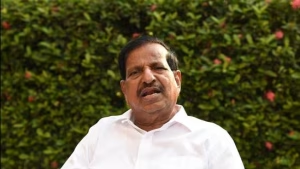The Navi Mumbai Municipal Corporation (NMMC) finds itself at the centre of a massive political controversy as Navi Mumbai ward boundary objections pour in from across the political spectrum. The NMMC has announced the schedule for the upcoming 2025 General Elections, beginning with the publication of draft ward boundaries, triggering an unprecedented wave of opposition from multiple political parties and civic groups.
The controversy surrounding Navi Mumbai ward boundary objections has intensified following allegations that the proposed electoral map represents a deliberate attempt at gerrymandering. Political leaders, including supporters of former BJP minister Ganesh Naik and various opposition parties, have accused the municipal administration of strategically redrawing boundaries to fragment rival vote banks ahead of the crucial municipal elections.
The scale of opposition to the proposed ward restructuring has been remarkable, with approximately 2,500 Navi Mumbai ward boundary objections submitted to the NMMC administration. This unprecedented response reflects deep-seated concerns among residents and political stakeholders about the fairness and transparency of the electoral boundary demarcation process.
A BJP delegation led by former MP Dr. Sanjeev Naik and former Mayor Sagar Naik submitted written objections and suggestions to the Corporation, demanding comprehensive revisions in line with prescribed rules and criteria. The party has raised serious concerns about potential bias in the NMMC election process, arguing that the current draft boundaries fail to meet established democratic standards.
 Also Read: Navi Mumbai ward boundary objections emerge.
Also Read: Navi Mumbai ward boundary objections emerge.
Other: Navi Mumbai’s Ecological Reserve
Historical precedent suggests that such electoral boundary disputes are not uncommon in Navi Mumbai. NMMC had previously received 3,852 objections and suggestions for re-aligning electoral wards, indicating a pattern of contentious ward redistricting exercises that have consistently generated significant public resistance.
The involvement of prominent political figure Ganesh Naik has added considerable weight to the Navi Mumbai ward boundary objections. Airoli MLA Ganesh Naik has alleged that a few civic officials of the election department were working under pressure, and he had already warned the Collector, Election Commission, and other authorities that there would be a lot of issues with the draft ward boundaries demarcation.
Naik’s criticism extends beyond mere procedural concerns, as he has specifically highlighted what he perceives as systematic manipulation of the electoral process. His allegations suggest that certain civic officials have been subjected to external pressure to create ward boundaries that favour specific political interests, undermining the democratic principle of fair representation.
The former minister’s concerns about Navi Mumbai ward boundary objections are particularly significant given his extensive political experience and deep understanding of local electoral dynamics. His warning to higher authorities demonstrates the gravity of the situation and the potential long-term implications for democratic governance in Navi Mumbai.
The administrative handling of Navi Mumbai ward boundary objections has become a critical issue in itself. NMMC has clarified that individuals who file objections or suggestions will be informed separately about the date and time of the hearing, suggesting an attempt to ensure transparency in the review process.
However, critics argue that the sheer volume of objections indicates fundamental flaws in the initial boundary demarcation process. The fact that over 2,500 Navi Mumbai ward boundary objections have been submitted suggests widespread dissatisfaction with the proposed electoral map, raising questions about the adequacy of the consultation process undertaken by the municipal administration.
The technical aspects of ward boundary demarcation involve complex considerations, including population distribution, geographical contiguity, community representation, and administrative efficiency. Opposition leaders argue that these factors have been inadequately addressed in the current proposal, leading to the massive wave of Navi Mumbai ward boundary objections.
The controversy surrounding Navi Mumbai ward boundary objections extends far beyond mere administrative concerns, touching on fundamental questions of democratic representation and electoral fairness. Political analysts suggest that the proposed boundaries could significantly alter the electoral landscape of Navi Mumbai, potentially disadvantaging certain communities and political groups.
The allegations of gerrymandering associated with these Navi Mumbai ward boundary objections are particularly serious, as they suggest deliberate manipulation of electoral boundaries for partisan advantage. Such practices undermine the principle of equal representation and can lead to long-term distortions in the democratic process.
Opposition parties have argued that the proposed ward boundaries represent an attempt to fragment traditional vote-banks, making it more difficult for certain political groups to maintain their electoral strength. These concerns form a central part of the Navi Mumbai ward boundary objections and reflect broader anxieties about the fairness of the upcoming municipal elections.
The current controversy over Navi Mumbai ward boundary objections must be understood within the broader context of electoral boundary disputes in Maharashtra. About 25% of ward boundaries, affecting around 60 wards, have been altered in Mumbai’s municipal corporation, indicating that boundary revisions are a common feature of electoral preparation processes.
However, the scale and intensity of the Navi Mumbai ward boundary objections appear to exceed typical boundary revision disputes. The involvement of senior political figures and the unprecedented number of objections suggest that this controversy represents a particularly significant challenge to the electoral process.
The resolution of the Navi Mumbai ward boundary objections will have far-reaching implications for the credibility of the upcoming municipal elections. The NMMC administration faces the challenging task of addressing legitimate concerns while maintaining the electoral timeline and ensuring fair representation for all communities.
The hearing process for these Navi Mumbai ward boundary objections will be crucial in determining whether the proposed boundaries can be modified to address opposition concerns. The outcome of this process will likely influence public confidence in the electoral system and set important precedents for future boundary revision exercises.
As Navi Mumbai prepares for its crucial municipal elections, the resolution of these Navi Mumbai ward boundary objections remains a critical factor in ensuring democratic legitimacy and public trust in the electoral process. The controversy highlights the importance of transparent, inclusive, and fair electoral boundary demarcation in maintaining the integrity of local democratic institutions.

